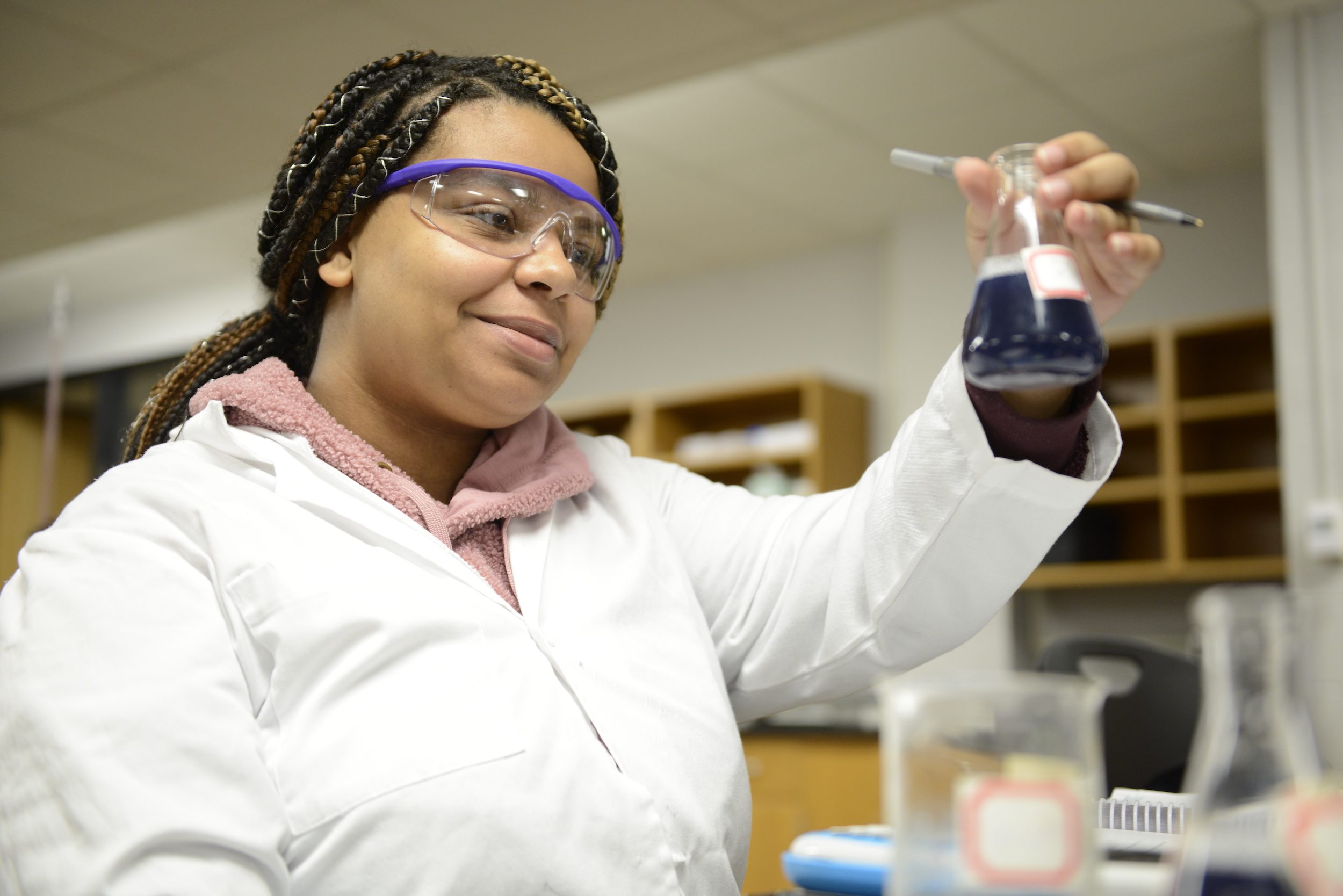
Biochemistry
Major/Minor

Chemistry is a major branch of the physical sciences and involves the study of substances and energy. It focuses on composition, characteristics, changes, reactions, uses, benefits, and dangers to humankind. Chemistry is important in the production of food, clothing, furniture, pharmaceuticals, plastics, glass, paper, and electronic devices. Knowledge of chemistry is crucial to environmental protection efforts as well as to human health and safety.
Broad areas for further study are inorganic chemistry, organic chemistry, analytical chemistry, applied chemistry, biochemistry, physical chemistry, nuclear chemistry, medicinal chemistry, and environmental chemistry.
